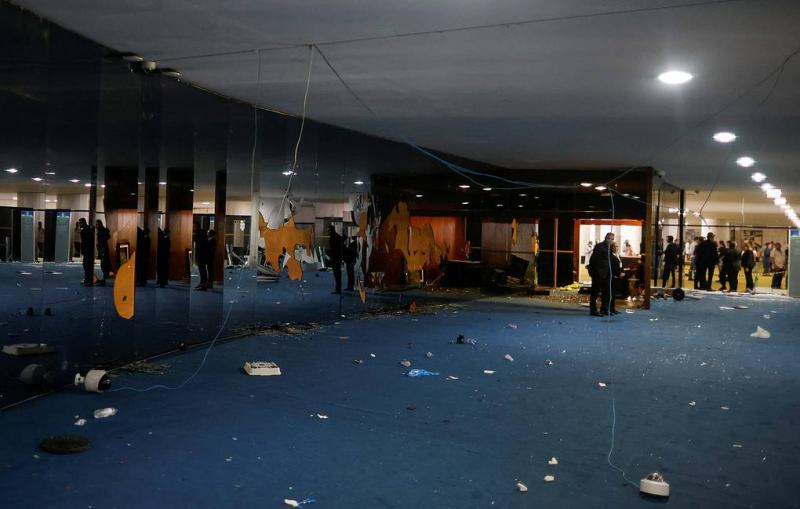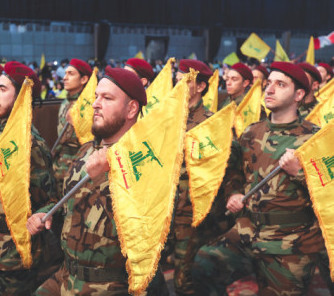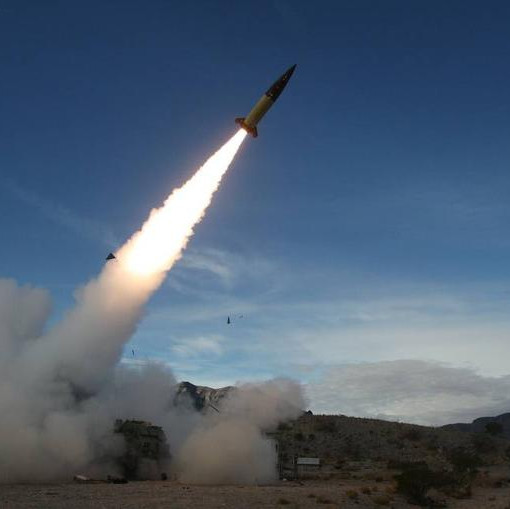
© REUTERS/Adriano Machado/TASS
Top stories from the Russian press on Tuesday, January 10th, prepared by TASS
The foreign ministers of Russia, Syria and Turkey may meet in Moscow on Wednesday, what could result from Brazil’s Capitol riot, and Sweden is not ready to compromise its domestic policy for NATO membership. These stories topped Tuesday’s newspaper headlines across Russia.
Vedomosti: Top diplomats from Russia, Turkey, Syria may meet in Moscow on January 11
The foreign ministers of Russia, Syria and Turkey will hold a meeting in Moscow on January 11, Asharq Al-Awsat reported. According to the Saudi newspaper, the foreign ministers’ meeting should pave the way for the first ever talks between the three countries’ leaders. Apart from Russia’s Sergey Lavrov, Syria’s Faisal Mekdad and Turkey’s Mevlut Cavusoglu, the meeting on Wednesday may be attended by the UAE’s top diplomat Sheikh Abdullah bin Zayed bin Sultan al-Nahyan.
According to the Saudi daily, it is the Emirates who intends to host a trilateral summit. However, if the three presidents decide to meet in Moscow, Abu Dhabi would send its high-profile representative. "Work on the timing for such a meeting is ongoing. No exact date has yet been agreed on," a Russian Foreign Ministry official told Vedomosti.
The United Nations is also interested in trilateral talks. Work is currently underway in Geneva for a January 23 meeting between the representatives of Russia, Syria, Turkey and the UAE with UN Special Envoy for Syria Geir Pedersen, Asharq Al-Awsat reported. The United States is opposed to any normalization with the Assad regime. However, on January 6, US National Security Council Coordinator John Kirby said that Washington would like to see what comes out of potential Turkey-Syria negotiations.
So far, the negotiations imply that a meeting between the leaders of Russia, Turkey and Syria will take place and that will be key for resolving the Syrian conflict, Researcher at the Russian Academy of Sciences’ Institute of Oriental Studies Amur Gadzhiyev told Vedomosti. According to him, the Ankara-Damascus dialogue plays a very important role in a Syrian settlement. Besides, normalization between Turkey and Syria would nullify the likelihood of another ground operation by Turkish troops, a plan Ankara had nurtured in the past eight months. Gadzhiyev sees no obvious obstacles to a trilateral summit, except for separate statements from the US who is dissatisfied with communication between Ankara and Damascus.
The intensity of the recent meetings between Turkey and Syria mean that major arrangements are underway for bilateral normalization, Nikolay Surkov, a senior researcher at the Russian Academy of Sciences’ Center for Middle East Studies, told the newspaper. He referred to communication between the two countries' defense and foreign policy agencies as well as via intelligence services, despite a large number of issues that have yet to be resolved. A January 11 meeting between the foreign ministers would mean that progress has been made and normalization between Turkey and Syria could follow in a few months, the expert concluded.
Izvestia: What awaits Brazil after its 'Capitol riot'
Experts interviewed by Izvestia expect no political upheaval from the attack on the National Congress in Brazil. On Sunday, supporters of former Brazilian President Jair Bolsonaro staged their version of the US Capitol riot, when incoming leader Luiz Inacio Lula da Silva, who heads the Workers’ Party, was staying in Sao Paulo on a working visit. He reacted by convening an emergency meeting where a decision was made to use federal forces to reinstall public security in the capital, Brasilia. As of January 9, almost 400 people were arrested.
Lula said his country had never seen such events. He also vowed to punish the rioters. "We are going to find out who is their sponsor," the new Brazilian president added. Other Latin American countries denounced the riots, too. So did US President Joe Biden who said the incident was an assault on democracy. The EU’s diplomacy chief Josep Borrell and French President Emmanuel Macron followed suit.
This assault is a carbon copy of the notorious US Capitol riot, and the official reaction will be the same as in the United States, with the protesters to be prosecuted, Head of the Department of European and American Studies at Moscow State Institute of International Relations Lyudmila Okuneva warned. According to her, the authorities will not allow any dissatisfaction with the election results to transform into antidemocratic actions that may resemble a coup. However, according to her, measures will be taken only against those who turned a peaceful protest that took place during the whole period of the transit of power (November-December 2022) into a true riot, and Bolsonaro won’t be affected. This is because Brazil’s ex-leader condemned the unrest, unlike his US counterpart, ex-President Donald Trump, who called the Capitol protesters great patriots, Okuneva said.
Dmitry Razumovsky, a member of the Russian International Affairs Council (RIAC) and director of the RAS Institute for Latin American Studies, said that the ex-president’s moderate supporters had been promoting the idea that it was Lula’s representatives who deliberately left the city with almost no police on that day. "On January 8, Bolsonaro condemned the protesters, because this is an undesirable development for him. The attempt at an assault gives his opponents some ground for accusations of organizing a revolt, while his true goal is to become a major systemic politician and win the next presidential election in four years. And the behavior of his staunch supporters only gives trump cards to his rivals," Razumovsky told Izvestia.
Vedomosti: Sweden refuses to make further concessions to Turkey in order to join NATO
The dialogue with Turkey on its consent to Sweden’s accession to NATO has yielded no results, Lars Danielsson, Swedish Ambassador to the EU, announced on Monday. On Sunday, Swedish Prime Minister Ulf Kristersson said that Stockholm would not make any further concessions to Turkey over the extradition of Kurds and individuals associated with Fethullah Gulen, an Islamic religious figure, whom Ankara branded as a terrorist. The Swedish PM said his country had amended its anti-terrorism legislation to meet some of Turkey’s demands.
On January 8, Finland’s top diplomat Pekka Haavisto said his country would not seek to join NATO separately from its neighbor. Sweden could have set the mechanism for extraditing those people in motion, but its government refuses to do so, since the Kurds are an aspect of Sweden’s domestic policy and the public would view their extradition as a violation of democratic principles by officials, Alexey Volkov, a lead researcher at the RAS’s Center for European Studies, told Vedomosti. In fact, Stockholm does not need an accelerated entry into NATO that much, since the Swedes have been actively cooperating with the alliance and have an effective defense sector and progressive armed forces anyway, he argued. It is also worth remembering, he said, that it was Finland rather than Sweden who initiated the idea of NATO accession after Russia launched its special military operation in Ukraine.
With Sweden in no hurry to extradite the Kurds, Turkish leader Recep Tayyip Erdogan is facing serious criticism from his political rivals with six months to go until the presidential election, according to Kirill Semyonov, an expert with the Russian International Affairs Council. Now it would be important for Erdogan to demonstrate his resolve against the two Nordic countries’ NATO bid. Ankara still has some levers of influence against the two as part of the procedure for joining NATO, and it could use them any time, the expert believes. Ideally, Ankara would like to have all NATO allies, including the US, refrain from providing military support to Syria’s Kurds, who have supported the Western coalition in the fight against the Islamic State (outlawed in Russia) since 2016, Semyonov concluded.
Nezavisimaya Gazeta: Turkey may not need Blue Stream gas pipeline
Relations between Russia and Turkey in the gas sphere have been undergoing a substantial change. Ankara said it would cut its gas imports by 30% now that it has been established that natural gas reserves at its Sakarya gas field, amounting to 710 billion cubic meters, would suffice to cover the country’s gas demand for the next 33 years.
Any increase in Turkey’s own gas reserves should not hamper its efforts to build a gas hub, experts assure. Tukey would benefit from playing the role of a mediator between the West with its sanctions and Russia, expert Tatyana Skryl told Nezavisimaya Gazeta, while the potential of the country’s new Black Sea gas field would be mostly used to cover its domestic demand for fuel.
Turkey’s statements about its gas self-sufficiency came amid Ankara’s demand that it postpone payment for Russian gas, and the Turkish energy minister said such talks with Moscow are ongoing. Bloomberg said earlier that Turkey would like to get a discount of more than 25% for 2023 and for part of the 2022 gas payments.
Turkey’s desire to get the discount looks understandable to Maxim Khudalov, an independent industry expert, since gas costs have been a major pro-inflationary factor. National Energy Security Fund Deputy Director Alexey Grivach sees room for successful maneuvers here, judging from the current market situation and Turkey’s plans to build a gas hub.
Experts warn that Russia will probably have to agree to Turkey’s terms, since Ankara is aware of its advantages in terms of infrastructure and geopolitics.
Kommersant: Russia’s oil output up 2% in 2022
Last year, Russia increased its oil production by 2% to some 535 million metric tons, sources familiar with output figures told Kommersant. Surgutneftegaz, which became Russia’s third largest oil producer in 2022, leaving Gazprom Neft behind, increased its output volumes fastest. Rosneft was the only one of the four Russian oil majors to see its production decline. Experts warn that Russian oil output may drop in January-February amid the price cap imposed by the EU and the United States on its crude and petroleum products.
The EU embargo may affect this year’s oil production the most, and Russia is likely to find alternative channels for its oil exports, but it will take time to secure those, said Maxim Malkov at Kept. He assumes that Russian crude output may reduce in the first two months of 2023, when new export chains will be established, and expects volumes to recover later on. As a result of a production decrease forecast by the Russian government the country may decommission oil wells with an excessive level of water content, the expert told Kommersant.
"In February, Russia may see quite a sharp drop in demand from oil refineries, as the EU still remains the key market for the export of Russian petroleum products, while redirecting such exports to new markets may be harder and take longer, unlike oil supplies," Sergey Kondratyev from the Institute of Energy and Finance Foundation said. According to his estimate, next month, demand for crude oil from Russian oil refineries may fall by 2.8-3.2 million metric tons against January, while oil production may drop by 2.5-3 million metric tons.









